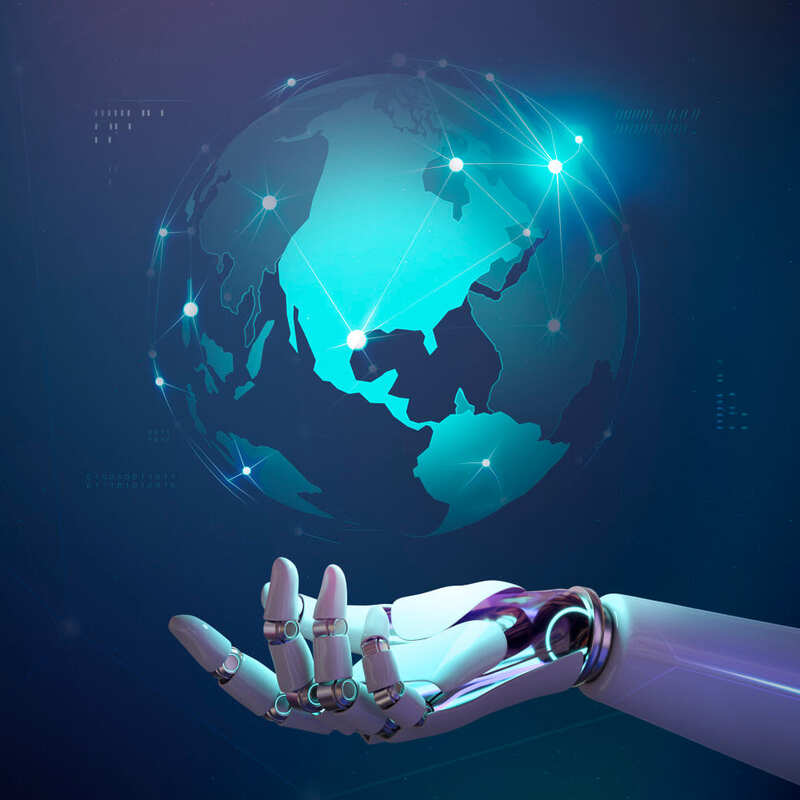Health trends across the ASEAN region show a significant rise in cross-border patient mobility. Many patients now choose to travel to neighbouring countries to obtain better, faster, or more affordable medical services.
This phenomenon, known as medical tourism, has driven a growing demand for reliable medical translation services. In this context, medical translation has become increasingly important to ensure accurate communication among patients, doctors, and healthcare institutions.
The main challenge in ASEAN patient mobility is language and cultural differences. Mistranslation of medical terms or misinterpretation of cultural context can have serious implications for patient safety.
Therefore, medical translation must be carried out by professionals with a deep understanding of medical terminology, clinical procedures, and the cultural nuances of each country. For instance, medical translators must accurately convey medication dosages, procedure explanations, and descriptions of illnesses.
Beyond communication, translation accuracy is also closely linked to legal compliance, particularly in medical documents, treatment consent forms, and patient records. Minor errors can pose legal risks for hospitals and medical personnel.
Hence, the strategic role of medical translation in supporting a safe, efficient, and reliable cross-border healthcare system in the ASEAN region cannot be overstated.
The Stakes of Inaccurate Medical Translation
Errors in medical translation can have serious consequences for patients and healthcare institutions. A common example is the mistranslation of medical prescriptions.
For example, the medical term ‘once daily’ incorrectly translated as ‘once every hour’ can lead to overdose and endanger the patient’s life. Another example is errors in translating informed consent, where patients do not fully understand the risks of medical procedures due to ambiguous or incomplete translations.
A concrete example is the case of Willie Ramirez. His family said he was intoxicado, meaning he was poisoned. However, the translator mistakenly translated it as ‘drunk,’ so the medical staff treated him for a drug overdose. Ramirez was actually experiencing a brain haemorrhage, and due to incorrect and delayed treatment, he suffered permanent paralysis.
The impact is felt not only by patients but also by hospitals and healthcare professionals. Patients may experience severe side effects, lose trust in the healthcare system, and even take legal action.
For hospitals, translation errors can lead to lawsuits, reputational damage, and significant financial losses. Legally, inaccurately translated medical documents may also be deemed invalid, with implications for legal compliance and professional liability.
Therefore, accuracy and linguistic competence are not just language matters but crucial to patient safety and institutional integrity. High-quality translation is the foundation of trust and safety in cross-linguistic medical communication.
Certified Translation: Guaranteeing Accuracy and Trust

Source: Freepik.com
The role of certified medical translators is increasingly crucial in today’s multilingual healthcare sector. The demand for these professionals is on the rise, driven by the need for accurate and reliable cross-language medical communication.
A certified medical translator doesn’t just translate word-for-word. They also grasp the medical context, technical terminology, and legal implications of each translated document, making them an indispensable part of the healthcare system.
Professional standards for medical translators are usually set by internationally or regionally recognised certification bodies, such as the IMIA (International Medical Interpreters Association), the ATA (American Translators Association), or national translator associations in ASEAN countries, such as the Malaysian Translators Association (MTA) or the Indonesian Translators Association (HPI).
Such certification ensures that translators possess linguistic expertise, medical competence, and a strong grasp of ethics and patient confidentiality. In addition, certification signifies the translator’s ability to handle essential documents, such as medical records, informed consent documents, clinical trial documents, and laboratory reports, with a high degree of precision and professionalism.
Certified medical translation is not a simple word-for-word task. It’s a comprehensive process that requires an understanding of the clinical context, cultural adaptation, and the ability to ensure that medical meanings and instructions remain consistent across different healthcare systems.
Certified medical translators are not just translators; they are bridges that ensure patient safety, legal compliance, and the credibility of medical institutions. The quality of their translation is the primary foundation of safe and reliable cross-language healthcare services.
Localization Considerations in Southeast Asia
In the context of medical translation, Southeast Asia presents unique challenges due to the diversity of languages, cultures, and healthcare systems across countries. Indonesia, Malaysia, Thailand, Vietnam, and the Philippines have different medical terminology, communication styles, and legal standards. Localization, the process of adapting translations to the local context, is an essential step in ensuring that medical messages remain accurate and easily understood by healthcare professionals and patients alike.
In Indonesia and Malaysia, many medical terms are derived from English but adapted differently.” The word stroke is translated as ‘stroke’ in Indonesia, but is often referred to as ‘angin ahmar’ in the Malay medical context. In Thailand, medical terms written in the Thai script require translators familiar with medical transliteration.
Meanwhile, in Vietnam, the medical terminology system is influenced by French, such as vitamin C, which is called vitamin Cô-sê. In the Philippines, the use of a mixture of English and Tagalog (Taglish) requires translators to adjust the tone and terminology to remain formal in a medical context.
In addition to language, medical writing styles also differ. Medical reports in Indonesia tend to be descriptive, whereas in Thailand and the Philippines, they are more technical. Differences in local laws and medical standards are also significant, for example, the format of informed consent or drug labels, which are regulated by each country’s regulations.
These challenges require translators to master not only language but also each country’s culture and healthcare system. A medical translator in ASEAN must be able to perform accurate localization to ensure cross-border medical communication remains safe, clear, and compliant with regulations.
Introducing Our Certified Medical Translation Services in Southeast Asia
SpeeQual Translation stands out as a trusted provider of medical translation services in Southeast Asia. Our deep understanding of how every word in a medical document can impact patient safety and clinical decisions sets us apart. We have designed our services to handle a wide range of medical documents, including medical devices, software, prescriptions, clinical trials, records, consent forms, and more.
At SpeeQual Translation, our strength is our team of certified medical translators. Each member is highly experienced and possesses a deep understanding of medical terminology across various ASEAN languages, including Indonesian, Malaysian, Thai, Vietnamese, and Filipino. With their extensive regional experience, we can tailor translations to each country’s cultural context and local medical standards.
At SpeeQual Translation, we not only ensure linguistic accuracy but also uphold the highest data security standards in accordance with international regulations. This includes those governing the protection of patient confidentiality. All our translation processes undergo multiple stages of review to guarantee precise, ethical, and legal results.
With SpeeQual Translation, you get more than just a translation service. You get certified human expertise plus quality control, ensuring accurate, secure, and reliable medical translations across Southeast Asia. Our commitment to accuracy and reliability is designed to make you feel secure in your choice of translation service.
Technology and Human Expertise in Medical Translation

Source: Unsplash.com
Machine translation is increasingly common in modern medicine for fast, efficient text translation. This technology speeds up translating large medical documents like research reports, clinical data, and publications. While fast, machine translation struggles with context, technical terms, and cultural nuances vital in medical communication. Relying solely on machine translation could potentially lead to misinterpretations and errors, underscoring the need for human oversight.
On the other hand, human-certified translation remains the gold standard in medical document translation. A certified medical translator preserves meaning, clinical context, and legal accuracy—not just words. Even minor translation errors in prescriptions, diagnoses, or consent can endanger patients and create legal issues. In addition, certified translators are bound by a professional code of ethics that guarantees the confidentiality and integrity of patient data.
The ideal solution combines translation technology with certified human oversight. Machines can handle large volumes quickly, while certified translators ensure that the final result remains accurate, legal, and ethical. This synergy results in efficiency without compromising safety and reliability in the translation of cross-language medical documents.
Conclusion: Why Certified Medical Translation is a Must in Southeast Asia
In Southeast Asia’s multilingual and multicultural healthcare landscape, your role is crucial. Certified medical translation is a necessity to ensure patient safety, legal compliance, and reliable medical communication.
Differences in language, terminology, and regulations between countries require your expertise and the support of trained and certified translators.
Only certified medical translators can ensure accurate, ethical, and standards-compliant translations. In today’s cross-border and digital healthcare era, certified medical translations are key to trust, professionalism, and safety in Southeast Asia.
As a trusted provider of medical translation services, SpeeQual prioritises accuracy, confidentiality, and speed without compromising quality. Our certified medical translators know Southeast Asian languages and medical terms, bridging patients and healthcare providers.
Become relevant and trusted with the help of SpeeQual’s medical translation services! Contact our team for more information!





